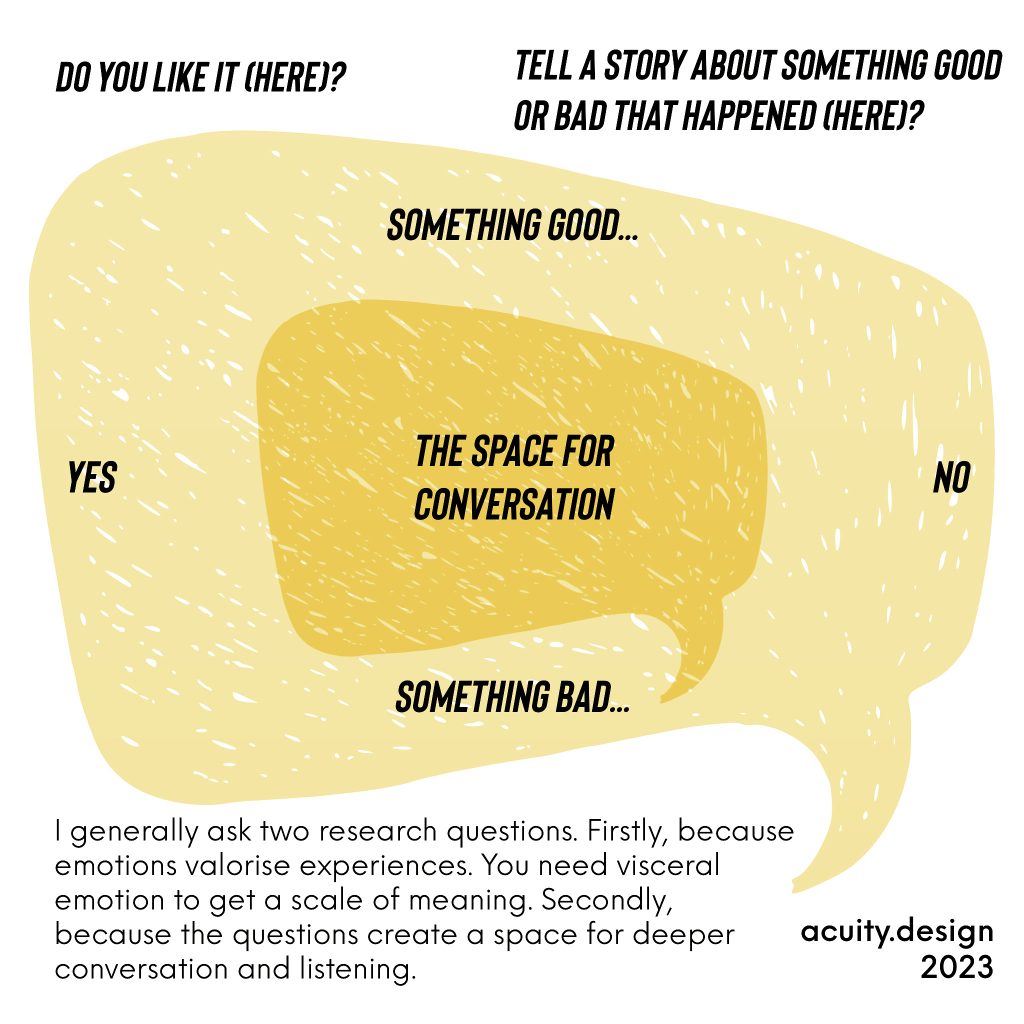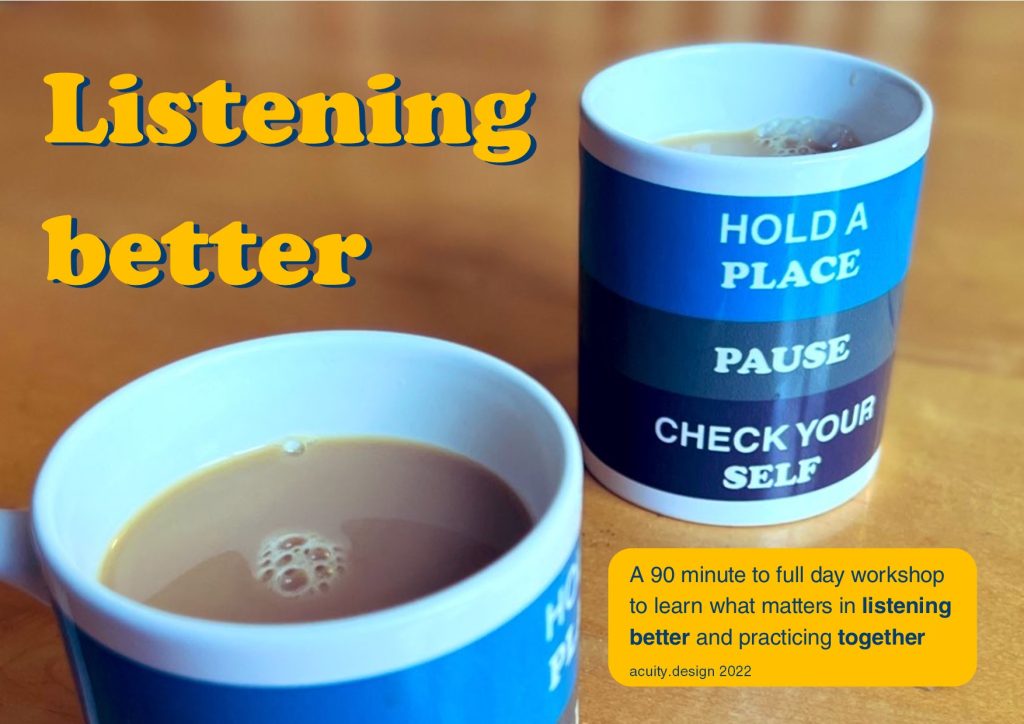
While running a walking workshop last week in Germany I was reminded that my user research questions are very basic. Given I do not speak German I was made more aware of this because of how much I generally needed to simplify my language for translation.
I do not view scripted user research question sets as necessarily helpful. Like A/B Testing, they create clear datasets but not always useful meaning. The hard tramlines of what is asked and what is allowed to be answered can be a trap (another tram problem but not the famous one).
Open questions and the funnel effect are useful but again can have a sense of direction that may avoid personal truths and discovery.
I start with simple direct questions.
They are also questions that are about emotions.
The questions are:
- How does it feel (here)?
- Tell me a story of something good or bad that happened (here)?
(The ‘here’ is because I often research physical spaces rather than digital products or services.)
The questions are used to create a space for conversation, a place for listening.
Hold a place

I run active listening workshops for companies and conferences (do come along to this one in Manchester for CampDigital).
The first point is that listening needs a space. This is the primary action that anyone can make: to hold a place in space (a sofa, a coffee shop table, whatever is possible and appropriate) and in time (sometimes it may take a few goes to find the time that works for a person who may lack trust or time for this opening moment of a process). It is the offer to be heard.
What this ‘Hold a place’ framework does not quite show is that the space needs emotional boundaries for it to hold meaning. This goes to an important idea:-
Emotions valorise experiences
The value of meaning is measured by emotion. From good to bad and from love to hate, the meaning space is stretched and bounded by human feeling. Sadly, this space is collapsed into a few emojis (happy face and angry face) and emotion is viewed as an error state full of irrational sentiments. However, it is this emotional space that is most important for deeper conversation and meaning making. The vastness within all of us is accessed and explored thru emotion. Humans valorise experiences thru emotions and that is why we need to ask directly about emotions and visceral feelings.
Emotions create the boundaries for a place to listen. Opening with emotional questions is how a space for conversation is created.
Once the space is created then all the other interview techniques can be applied.
But the space needs to be made, deliberately and emotionally.